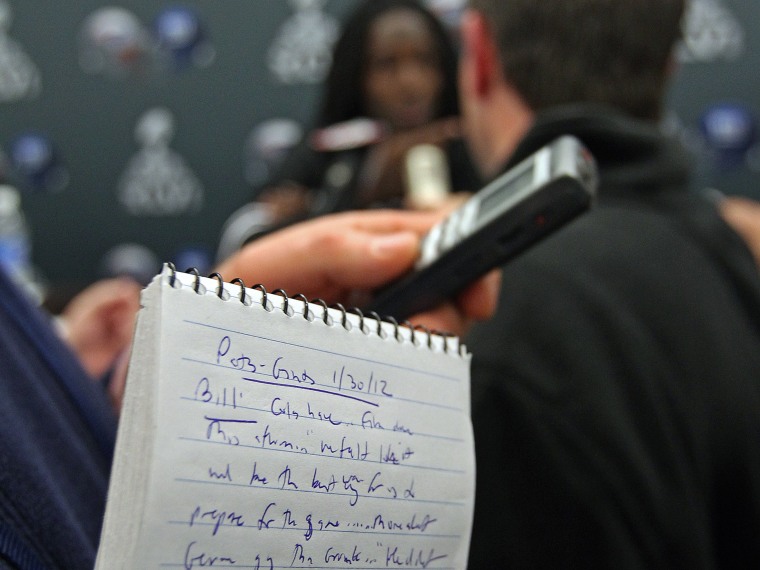Media companies around the country signed a letter of protest to Attorney General Eric Holder a day after learning about the Justice Department's subpoena of Associated Press phone records. In the letter, the Reporters Committee for Freedom of the Press urged for a strong federal shield law to protect reporters and their news-gathering materials in a court of law.
The DOJ disclosed on Monday afternoon that it had secretly acquired two months' worth of phone records of AP reporters and editors as part of an investigation into unauthorized leaks to the press. The records include calls by AP reporters in New York, Washington, and Hartford, Conn. The news-gathering organization learned of the seizure from a letter received on Friday from the U.S. attorney in Washington, D.C., Ronald C. Machen Jr.
"The scope of this action calls into question the very integrity of Department of Justice policies toward the press and its ability to balance, on its own, its police powers against the First Amendment rights of the news media and the public's interest in reporting on all manner of government conduct, including matters touching on national security which lie at the heart of this case," the committee wrote in the letter.
The protest was addressed to Holder and copied to Machen, and signed by more than 50 media companies, including msnbc's parent company NBCUniversal, along with ABC, CNN, the Washington Post, the New York Times Company, Time Inc., Dow Jones, the First Amendment Coalition, and the National Press Club.
The White House on Wednesday asked New York Sen. Chuck Schumer to reintroduce legislation from 2009 that would grant journalists added protection from federal seizure requests. The bill would allow journalists to ask a federal judge to deny subpoenas and offer better protections for sources.
"This kind of law would balance national security needs against the public's right to the free flow of information. At minimum, our bill would have ensured a fairer, more deliberate process in this case," Schumer said in a comment on Wednesday.
The committee in the letter reiterated the AP's request for the DOJ to return the telephone records and destroy all copies, in addition to explaining how the department will mitigate the impact of the actions and announce any other pending news media-related subpoenas not yet disclosed.
The journalists said they could not remember a similar instance in the 30 years since the DOJ issued guidelines governing its subpoena practice as it relates to phone records from reporters. The guidelines enacted in 1980-specifically to cover telephone records-were developed to accommodate "both the interests of the government in prosecuting crime and the First Amendment interests in reporting on issues of public concern," they wrote.
This week the Obama administration has also come under fire on two other issues. Officials have acknowledged that the IRS' Cincinnati office wrongly targeted conservative groups, giving disproportionate scrutiny to their applications to become 501(c)(4) organizations. Questions and GOP conspiracy theories over the deadly attack in Benghazi, Libya, last September also continue to bog down his administration.
